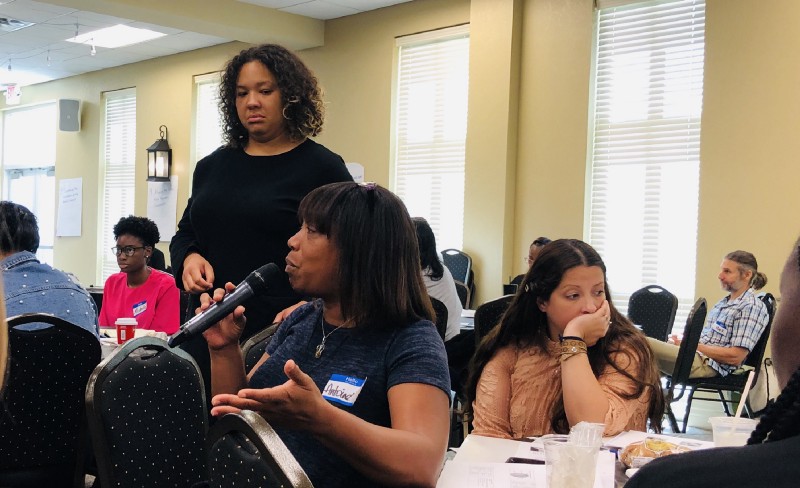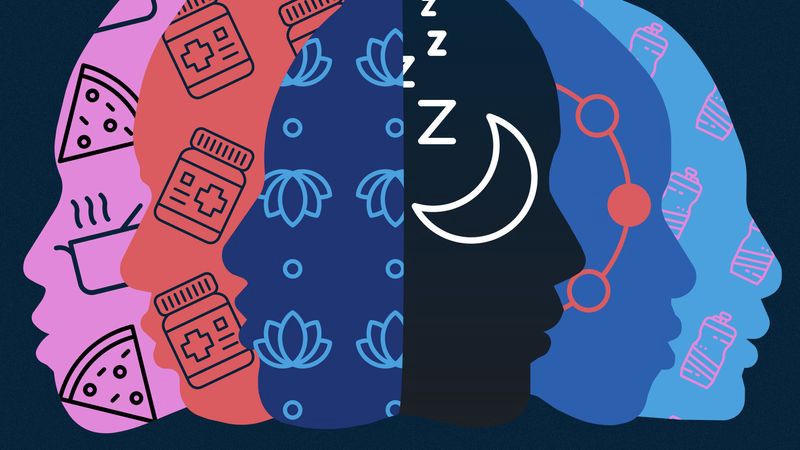Considering how clinicians approach self-care solutions
In honor of Self-Care Awareness Month, TPN.Health is tuning into how helping professionals help themselves. Drawing from recent conversations with clinicians and the running theme of clinician self-care at community events, we will explore how care for self informs clinicians’ life and work.
At the St. Bernard Recovery Rally, Captain Raul Vallacillo of the St. Bernard Fire Department spoke to the need of resources for first responders to find support and process the their work. Sanquinette Haynes, LMSW, of Metropolitan Human Services District (MHSD) shared how she approaches self-care with the imagery of putting on her oxygen mask first before helping others, relating to the familiar instruction in pre-flight safety presentations.
At MHSD’s presentation of Recovery-Oriented Systems of Care (ROSC) on September 11, I followed up with Sanquinette on how she breathes life into that analogy. For instance, if she recognizes the need for a reboot, she’ll ask for time off from work. Likewise, she finds it helpful to bring arising issues directly to her supervisor for resolution. She says that sometimes it can be helpful to collaborate with coworkers on specific issues to come to a solution, but often running it by a supervisor, who has a different scope of work and a different perspective, brings the solutions that are needed.
Sanquinette also spoke to the balancing act of fulfilling the “servant’s role” and meeting her own needs simultaneously. Under certain circumstances, such as in the face of natural disaster, this can be a challenge. For instance, during Hurricane Katrina, she recalls not having a house of her own while trying to direct clients to re-homing services. To her, it seemed counterintuitive to try to get a need met for people and not have that need met for herself, but the work had to be done. This example shines a light on how pressing circumstances may threaten the balance of attending to one’s own needs and tending to the needs of others.
Sanquinette wasn’t the only one talking about care for herself at the ROSC presentation. In fact, what prompted our conversation was that the main presenter, Dr. Ijeoma Achara-Abrahams, shared her own challenges in implementing self-care measures. For a long time in her career, she considered herself a workaholic and frequently overextended herself, a pattern which culminated in physical illness. For her, change only came about with the perspective shift that accompanied having a child for the first time. This prompted a re-evaluation of her own needs and the energy she was expending.

Upon Dr. Achara’s testimony, others in the room began to share on the microphone. One behavioral health provider, Irene, said to the room, “We have to look at ourselves — our inner needs. We can project that onto the people we serve. We must look at our relationships with the people around us and our clients.”
Irene’s address prompts the consideration that clinicians’ work is inextricably linked to how they are orienting in the world. This orientation, springing principally from one’s inner world, consists of relationships to people, places, and things in the outer world. In an echo of Irene’s address to the room, how one is relating to oneself colors how one is relating to the world.
ROSC was all about considering what it would take for systemic change in the way institutions approach care — changing the script from care designed to keep people in maintenance inside the behavioral health system (sick-care) to care designed to integrate people in abundant living (health-care). The fact is that the systemic change begins with a fundamental orientation-shift in the providers that do the work in institutions.
Dr. Achara relates this system-transformation to “an internal heart transformation.” Any human who experiences transformation knows that change occurs when one has the willingness to see differently, an open mind and an open heart. This is an orientation that covers both personal and professional domains. It is a way of looking at life.
I also spoke to a fellow TPN.Health team member, Kathryn Pennings, Clinical Liaison, who is studying in the Loyola graduate program for Clinical Mental Health Counseling and will graduate with a masters degree in May. She currently practices at Creative Family Solutions as an intern. At the ROSC presentation, a speaker brought up something that rang true to Kathryn’s experience working with clients.
The speaker said, “You should not be working harder than your client.” For Kathryn, this means creatively channeling what energy she has where it is useful, instead of dipping into overextension which can lead to burnout. This requires the practice of awareness — to what you are giving and to what the client is giving. At the heart of this is “meeting a client where they are,” remembering that this is a partnership in which the humans involved have energy limits and needs.
On the topic of burnout, Dr. Allison Palmisano, also known as The Feelings Doctor, shares her experience and how she practices solutions:
“I found yoga soon after I became licensed to practice clinical psychology independently. I spent seven years of clinical training focusing on helping my clients give their complex feelings the acknowledgment they deserve. When I got my license and was able to pause for a moment, my conscious awareness flooded with how burned out I’d become. After overextending myself to my clients for so long, everything in my being was pulling for me towards focusing on my own self-care. Yoga gave me the permission to practice what I had been preaching. The inviting and warm yoga community gave me the perfect space to learn how to take care of my own feelings.”
From the shared experiences of the community of helping professionals, it is clear that the topic of self-care is worth the time to consider. As a clinician, what works for you? Is there room for reaching out for help when needed? What is a community in which you feel supported? How can you cultivate that community? Perhaps it is possible to consider that you are an evolving human seeking answers and pathways to wellness just like clients. You are partnering in the work of being human.
Keep up with the progress of TPN.Health! Subscribe to our mailing list.
Sign up today to start connecting with clinicians in Louisiana.
